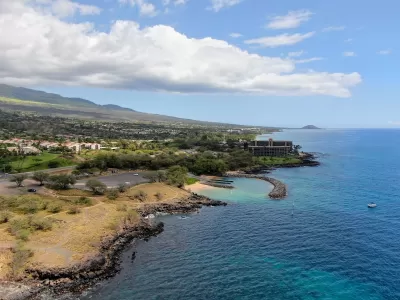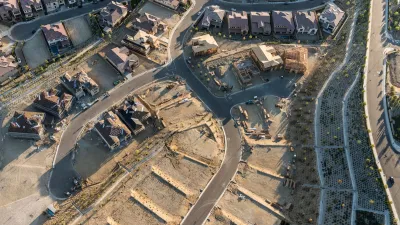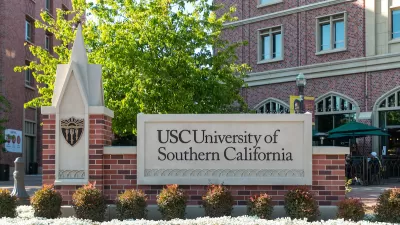Pulitzer Prize finalist Rosanna Xia visited the University of Hawai'i at Manoa, sharing her climate reporting expertise through sea level rise field tours, engaging storytelling workshops, and an inspiring public lecture.

Acclaimed environmental journalist and Pulitzer Prize finalist Rosanna Xia recently visited the University of Hawaiʻi at Mānoa to share her expertise in climate reporting with students and researchers. During her stay in January, organized by the Institute for Sustainability and Resilience, Xia connected with PhD students studying sea level rise and toured several vulnerable coastal hotspots across the island, discussing both the challenges and potential strategies for addressing this critical issue.
In addition to these field discussions, Xia led a workshop titled “Crafting Compelling Stories: Lessons from a Pulitzer Prize Finalist” for journalism students in the JOUR 330 class. Emphasizing the importance of intention, ownership, and responsibility in narrative building, she taught students how to integrate technical language with vivid, human-centered details. Her public lecture, “Telling the Story of Sea Level Rise: Lessons from a Los Angeles Times Reporter,” concluded the visit, leaving the audience inspired by her innovative approach to connecting science and humanity in the face of climate change.
Xia is an environmental reporter for the Los Angeles Times, where she specializes in stories about the coast and ocean. She was a Pulitzer Prize finalist in 2020 for explanatory reporting, and her work has been anthologized in the Best American Science and Nature Writing series.
FULL STORY: Pulitzer finalist shares climate reporting insights at UH Mānoa

Manufactured Crisis: Losing the Nation’s Largest Source of Unsubsidized Affordable Housing
Manufactured housing communities have long been an affordable housing option for millions of people living in the U.S., but that affordability is disappearing rapidly. How did we get here?

Americans May Be Stuck — But Why?
Americans are moving a lot less than they once did, and that is a problem. While Yoni Applebaum, in his highly-publicized article Stuck, gets the reasons badly wrong, it's still important to ask: why are we moving so much less than before?

Research Shows More Roads = More Driving
A national study shows, once again, that increasing road supply induces additional vehicle travel, particularly over the long run.

Judge Halts Enforcement of Anti-Homeless Laws in Grants Pass
The Oregon city will be barred from enforcing two ordinances that prosecute unhoused residents until it increases capacity and accessibility at designated camping sites.

Advancing Sustainability in Los Angeles County Schools
The Los Angeles County Office of Education’s Green Schools Symposium brings together educators, students, and experts to advance sustainability in schools through innovative design, climate resilience strategies, and collaborative learning.

Using Old Oil and Gas Wells for Green Energy Storage
Penn State researchers have found that repurposing abandoned oil and gas wells for geothermal-assisted compressed-air energy storage can boost efficiency, reduce environmental risks, and support clean energy and job transitions.
Urban Design for Planners 1: Software Tools
This six-course series explores essential urban design concepts using open source software and equips planners with the tools they need to participate fully in the urban design process.
Planning for Universal Design
Learn the tools for implementing Universal Design in planning regulations.
City of Moreno Valley
Institute for Housing and Urban Development Studies (IHS)
City of Grandview
Harvard GSD Executive Education
NYU Wagner Graduate School of Public Service
City of Cambridge, Maryland
Newport County Development Council: Connect Greater Newport





























